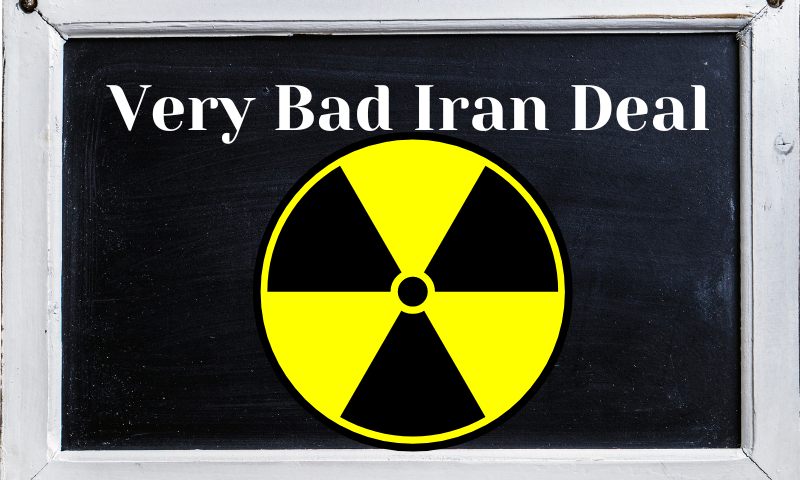Danielle Pletka
The Dispatch, Aug. 24, 2022
“… it can be confident that the agreement will survive, because ultimately INARA requires two-thirds supermajorities in both houses of Congress to block an agreement, a prospect with precisely zero likelihood given the current partisan environment.”
Like deja vu all over again, it seems the United States is on the verge of reentering the Joint Comprehensive Plan of Action, known popularly as the Iran nuclear deal. What with Mar-a-Lago, Ukraine, midterms, and the normal distractions of summer, some may have missed the latest. For you, a recap.
When last we left our dogged dealmakers in early spring—the last “on the verge of a deal moment—the Biden administration had abandoned its vision of the “longer and stronger” agreement it promised and was diligently swatting away critics (most notably, Senate Foreign Relations Committee Chairman Bob Menendez) in a desperate attempt to do no more than restore the Obama status quo ante. Indeed, it appeared peace was at hand when, suddenly, the Iranian government demanded that its elite Islamic Revolutionary Guard Corps (IRGC) be removed from the U.S. list of terrorist organizations. As such a delisting would be entirely counterfactual and impossible to defend politically in an environment where the IRGC was credibly being accused of plotting assassinations on U.S. soil, discussions ground to a halt. Iran has now apparently dropped that demand. But …
As the Wisconsin Project’s IranWatch details exhaustively, the Islamic Republic has continued energetic work on its supposedly non-existent nuclear weapons program, making such progress that a senior adviser to Supreme Leader Ali Khamenei claims Tehran is already able to fashion a weapon. (That raises the question of why talks are continuing, but since when do such inconvenient truths get in the way of a good diplomatic process?) Most troublingly in the IranWatch report is the clear implication that because of ongoing work, secret Iranian nuclear enrichment sites (and likely nuclear weapons experimentation and testing sites) are probably much smaller than older secret sites, thus rendering concealment of the program all the more easy. Which is why International Atomic Energy Agency (IAEA) investigations into Iranian concealment of violations of its obligations under the Nuclear Non-proliferation Treaty have become critical to supposedly “final” negotiations between Europe, Russia, China, and the United States. These investigations, in turn, have become the stumbling block to the happily-ever-after so earnestly sought after by the Biden administration’s myrmidons. To explain: … Source


